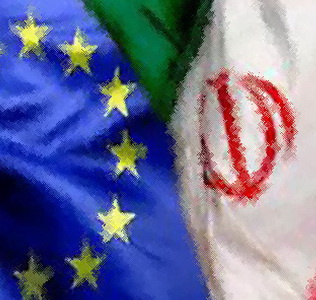EU Wait and See Policy
Commentary by Dr. Parviz Izadi, European affairs analyst, Ministry of Foreign Affairs Research Center

Unwilling to give up the benefits of economic partnership with Iran, the European Union is waiting to see how Iran’s domestic developments turn out. Commentary by Dr. Parviz Izadi, European affairs analyst, Ministry of Foreign Affairs Research Center.
In the post-revolution era, tensions between Iran and the European Union are rooted in Iran’s nuclear program and its human rights record. Despite discontent with Iran’s performance in these two domains, EU has been cautious in taking radical diplomatic measures such as recalling its envoys from Iran or summoning Iran’s ambassadors. In the current circumstances, when the Iranian government is still struggling with post-election ferment, the European Union is following a ‘wait and see’ policy, freezing diplomatic decisions until it gets a clear picture of Iran’s situation. However, EU members –represented by France, Germany and Britain in Five plus One- are following a unanimous policy over Iran’s nuclear program, i.e. support for further pressures on Iran through more powerful sanctions implemented by six global powers. These measures have not been actualized nevertheless.
EU collective recall of ambassadors from Iran took place for the first time with the Mikonos trial in Germany that led to an international arrest warrant for then Iranian intelligence minister Ali Fallahian. As a precedent, Britain had recalled its ambassador from Tehran in late 1980s after Imam Khomeini’s fatwa against Salman Rushdie, author of The Satanic Verses. There were calls for a similar measure after the controversial presidential election in Iran, but such a tough diplomatic measure is unlikely at the present. Europe has decided to wait and see how things turn out in the domestic scene of Iran’s politics.
Europe has never entered a deal with Iran without weighting up the situation. For EU, future moves depend on Iran’s developments in near future. The economic benefits of partnership with Iran are not something Europeans can neglect. It wouldn’t be devoid of reality to say that the nature of Iran-EU ties is economic rather than political, particularly after the revolution when Iran decided to exclude the United States from its road map for relations with West. Europe replaced the United States after the revolution and economic ties were prioritized, though at times politics cast a shadow over those relations.
In the post-revolution era, tensions between Iran and the European Union are rooted in Iran’s nuclear program and its human rights record. Despite discontent with Iran’s performance in these two domains, EU has been cautious in taking radical diplomatic measures such as recalling its envoys from Iran or summoning Iran’s ambassadors. In the current circumstances, when the Iranian government is still struggling with post-election ferment, the European Union is following a ‘wait and see’ policy, freezing diplomatic decisions until it gets a clear picture of Iran’s situation. However, EU members –represented by France, Germany and Britain in Five plus One- are following a unanimous policy over Iran’s nuclear program, i.e. support for further pressures on Iran through more powerful sanctions implemented by six global powers. These measures have not been actualized nevertheless.
EU collective recall of ambassadors from Iran took place for the first time with the Mikonos trial in Germany that led to an international arrest warrant for then Iranian intelligence minister Ali Fallahian. As a precedent, Britain had recalled its ambassador from Tehran in late 1980s after Imam Khomeini’s fatwa against Salman Rushdie, author of The Satanic Verses. There were calls for a similar measure after the controversial presidential election in Iran, but such a tough diplomatic measure is unlikely at the present. Europe has decided to wait and see how things turn out in the domestic scene of Iran’s politics.
Europe has never entered a deal with Iran without weighting up the situation. For EU, future moves depend on Iran’s developments in near future. The economic benefits of partnership with Iran are not something Europeans can neglect. It wouldn’t be devoid of reality to say that the nature of Iran-EU ties is economic rather than political, particularly after the revolution when Iran decided to exclude the United States from its road map for relations with West. Europe replaced the United States after the revolution and economic ties were prioritized, though at times politics cast a shadow over those relations.

